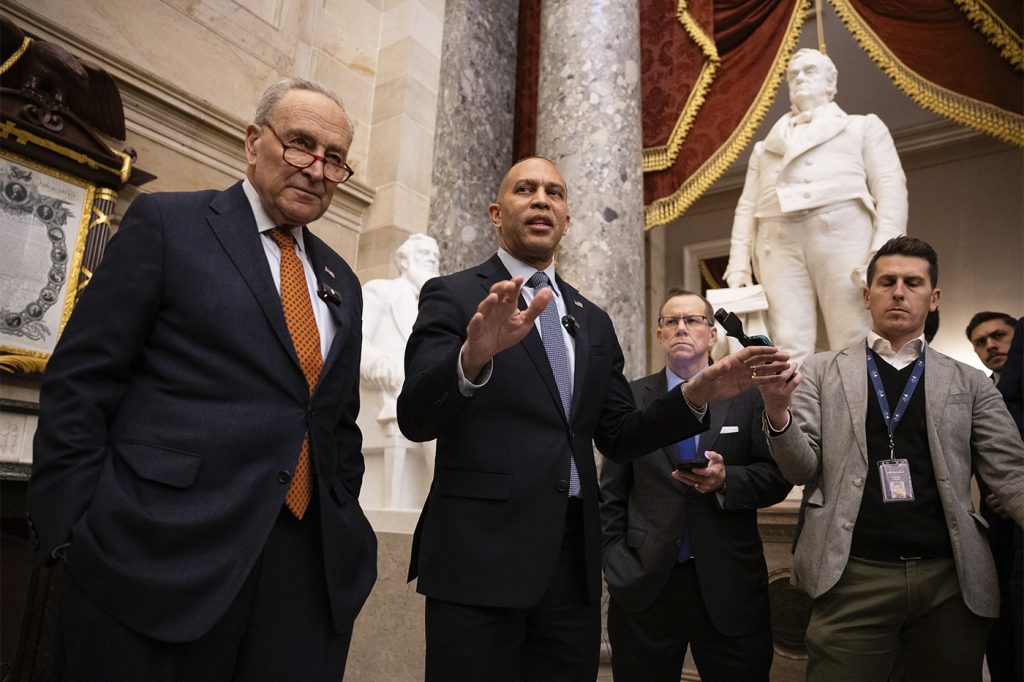Schumer’s Leadership Crisis: A Deepening Divide Among Democrats

Senate Minority Leader Chuck Schumer (D-N.Y.) and House Minority Leader Hakeem Jeffries (D-N.Y.) speak with reporters at the U.S. Capitol Feb. 12, 2025. (Francis Chung/POLITICO via AP Images)
House Speaker Mike Johnson claimed that Senator Chuck Schumer is afraid of his own shadow, highlighting his lack of leadership amid growing Democratic frustration over the federal government shutdown deal. Progressive groups and lawmakers argue that the episode reveals the need for new leadership within the party, with plans to channel this argument into Senate primaries in states such as Maine and Michigan.
The eight Democrats who supported the GOP-led funding bill face no voters in 2026, while Schumer, D-N.Y., is not up again until 2028 despite absorbing much of the criticism. Rodell Mollineau, a former senior aide to the late Senate Majority Leader Harry Reid, stated that the shutdown deal will haunt candidates viewed as aligned with Schumer, with progressive groups believing he helped shape the agreement even though he voted against it.
Many progressives already distrusted Schumer after his March vote for a GOP stopgap measure, and some now argue he either influenced the latest deal or lost control of his caucus. Concerns increased after a report that Schumer urged potential 2028 presidential contenders not to attack the agreement. Six of the eight Democrats who backed the shutdown deal recently won reelection or are retiring, shifting pressure onto candidates considered friendly to party leadership.
Maine Gov. Janet Mills faces that pressure directly after Schumer endorsed her for the Senate primary against Republican Sen. Susan Collins. She is battling Graham Platner, who has Vermont Sen. Bernie Sanders’ support and who blamed Schumer’s leadership for the shutdown outcome. Mills criticized the deal, stating Maine voters deserve affordable healthcare rather than promises of votes that may not pass. In Michigan, Rep. Haley Stevens is widely seen as the establishment-backed candidate and has praised Schumer’s leadership. State Sen. Mallory McMorrow has taken the opposite approach, calling for Schumer to be replaced and arguing that Democrats must change course.
Strategists view the Maine and Michigan primaries as early tests of whether an anti-establishment message can energize voters. MoveOn, the Progressive Change Campaign Committee, and Indivisible signaled plans to support that push, with Indivisible announcing it will not back any Senate candidate who refuses to call for Schumer’s departure. Progressives were already frustrated by Schumer’s refusal to endorse Zohran Mamdani’s successful New York City mayoral campaign, which strengthened calls for new party voices.
Historical examples show leaders can withstand internal criticism, as former Senate GOP Leader Mitch McConnell and former House Speaker Nancy Pelosi both kept power despite public pushback.




